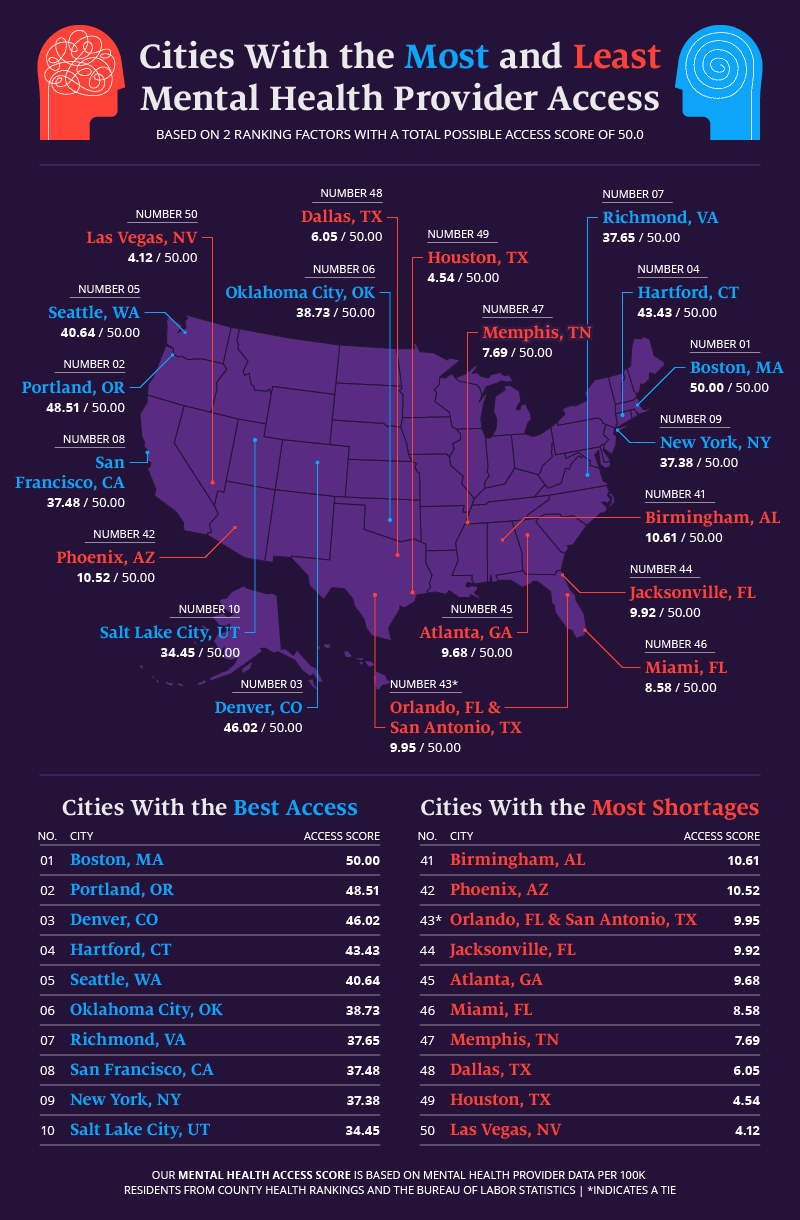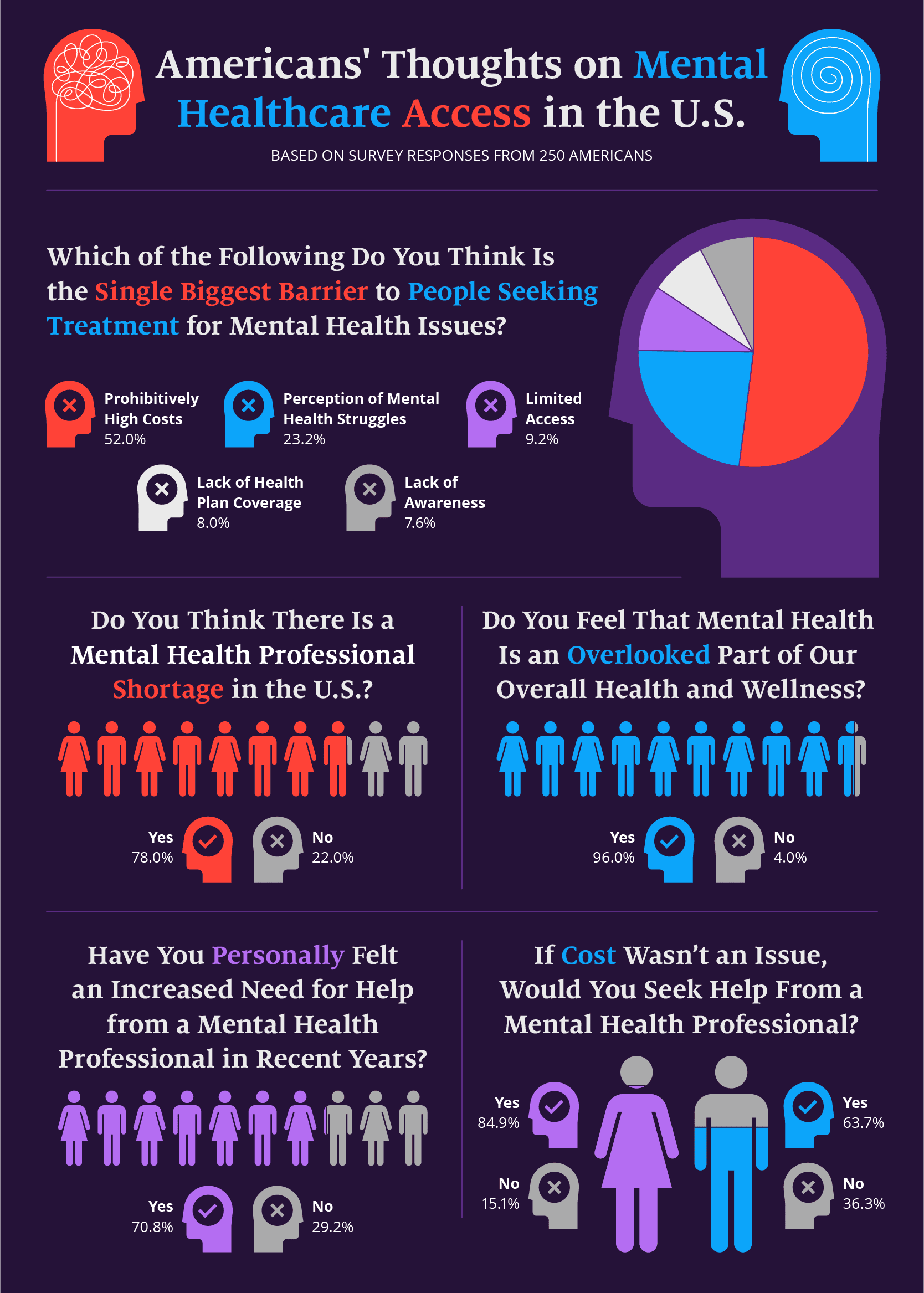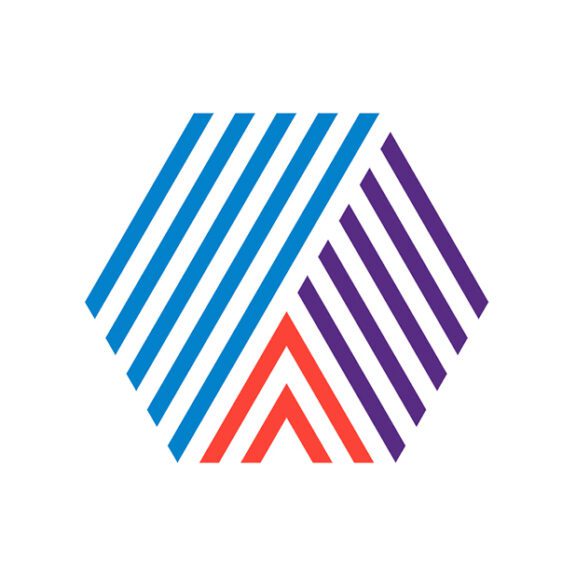Have you ever had difficulty finding a mental health provider in your area? You’re not alone. Unfortunately, not everyone in the U.S. has equal access to mental healthcare providers.
Mental health is a vital part of our overall well-being, and access to high-quality care can be a matter of life or death. For this reason, we examined 50 of the most populous cities in the United States to identify access gaps and disparities. We hope this data will help bring attention to the need for equal opportunities for treatment in underserved areas and encourage policymakers to ensure that all Americans have access to high-quality mental healthcare.
It is also critical to understand how Americans think about mental health. We conducted a survey to get their perspectives and further the ongoing national conversation. Read on to learn about our findings.
Methodology
To find the cities with the most mental health shortages, we started by creating a list of 50 of the largest U.S. cities. We then ranked them based on the number of mental health providers according to County Health Rankings and the number of mental health counselors by city according to the Bureau of Labor Statistics. All data is positioned per 100,000 residents to allow for more accurate comparisons from city to city.
To create the ranking, both data points were equally weighted and scaled so that cities with more mental health providers per 100k people rank higher, and those with fewer mental health professionals rank lower. The highest possible score for a city was 50 and the lowest was 0.
To find out how Americans view mental health in the U.S., we conducted a survey in December 2022 to gather insight on what people consider the biggest barriers to treatment, and whether or not they think there is a general mental health provider shortage.
Key Findings
- The average number of mental health providers in U.S. cities is 399 for every 100k residents. The average number of mental health counselors in the U.S. is 100 per 100k residents.
- Boston is the city with the most access to mental health providers with a perfect score of 50 out of 50. Compared to other U.S. cities, it has many mental health providers per resident.
- Las Vegas is the city with the highest shortage of mental health providers with a score of 4.12 out of 50. Comparatively, it has very few mental health options per person.
- 78% of Americans think there is a mental health professional shortage in the U.S.
- 52% of Americans think the biggest barrier to seeking treatment for mental health issues is high costs.
- 74% of Americans would seek help from a mental health professional if the cost wasn’t an issue.
U.S. Cities With the Best and Worst Access to Mental Health Providers

Americans face a massive disparity in access to mental healthcare, depending on where they live. The nationwide average for mental health providers is 399 per 100k residents. For mental health counselors, it is 100 per 100k residents. These averages, however, don’t tell the whole story.
The Cities With The Best Access to Providers
These cities are the gold standard when it comes to U.S. mental healthcare access.
Boston residents have above-average mental healthcare access. The city ranked first in our study with the highest possible score of 50 out of 50. Boston has an impressive 939 mental health providers and 217 mental health counselors for every 100k residents, which is 136% and 117% more than the national average.
Portland, OR. is second only to Boston and has a solid mental health support system in place. Portland scores 48.51 out of 50 in terms of mental health resources and boasts 969 mental health providers and 161 mental health counselors for every 100,000 residents. That puts them 143% and 62% higher than the national average.
Ranking third in our study, Denver scored an admirable 46.02 out of 50. Denver has 650 mental health providers (63% more than the average) and 160 mental health counselors (60% more than the average) per 100k residents.
The Cities That Need Our Attention
These cities fell far short of the national averages, and It’s important to recognize the impact these shortages can have on individuals and the community as a whole.
Las Vegas residents face a significant mental healthcare shortage. The city scored 4.12 out of 50 (the lowest in our study), with only 229 mental health providers and 30 mental health counselors per 100k residents. That is 42% and 70% below the national average.
Houston (4.54 out of 50) and Dallas (6.05 out of 50) have the second and third worst ranking for access to mental healthcare nationally. There are 137 mental health providers (66% below the national average) and 56 mental health counselors (45% below the national average) for every 100,000 residents in Houston. Dallas has 172 mental health providers and 55 mental health counselors per 100,000 residents, which is 57% and 45% below the national average.
Some of these shortages seem to occur regionally, with three major cities in Texas and Florida having some of the largest shortages when it comes to mental health access in the U.S. Other major Southern cities with mental health shortages include Atlanta, Birmingham, and Memphis.
What Do Americans Think About Mental Health Access in the U.S.?

After noticing the stark regional differences in access to mental healthcare providers, it’s clear that seeking treatment for one’s mental health can be challenging. We wanted to shed some light on attitudes and experiences regarding mental health, so we conducted a survey of insured Americans to find out how they view it, what obstacles they face when seeking treatment, and whether they’ve noticed a lack of access to providers.
Of all the many issues Americans face accessing mental healthcare, financial barriers were the biggest by far. We found that 52% of those surveyed cited the high cost of treatment as a significant obstacle. However, if cost were not an issue, 74% of Americans said they would be willing to seek help from a mental health professional. Of that 74%, women were more likely to seek help than men (84% vs. 64%).
23% of Americans surveyed felt that seeking treatment for mental health issues may be perceived as a sign of weakness. We need to address this dangerous perception as a country, so more individuals feel safe and supported in seeking the help they need. Approximately three-quarters (78%) of Americans believe there is a shortage of mental health professionals in the United States.
It isn’t just access that’s stopping people from seeking the help they may need. 70% of Americans feel overwhelmed when seeking a mental health provider and 45% worry that getting time off work would be an issue if they needed to seek treatment for their mental health. With numbers so high, a concerted effort needs to be made to treat mental health as we would physical health and give people the information they need to find the right provider and offer support when they seek treatment.
Our survey results and regional analysis make one thing clear: prioritizing mental health is growing more important for Americans, and having systems in place that support it should be a top priority.
Closing Thoughts
Our study revealed stunning disparities in access to mental healthcare across the United States. This research highlighted the importance of addressing the significant provider shortage and mental health stigma we face as a nation and the need to work as a country to prioritize mental health resources and access for all.
Access to mental health and cost are two of the most significant barriers Americans face when seeking treatment. Enrolling in the right health insurance plan limits both costs and barriers to treatment. Everyone should have access to the mental healthcare they need.
If you or a loved one is struggling with suicidal thoughts, call the National Suicide Prevention Lifeline at 800-273-TALK (8255) any time, night or day.
